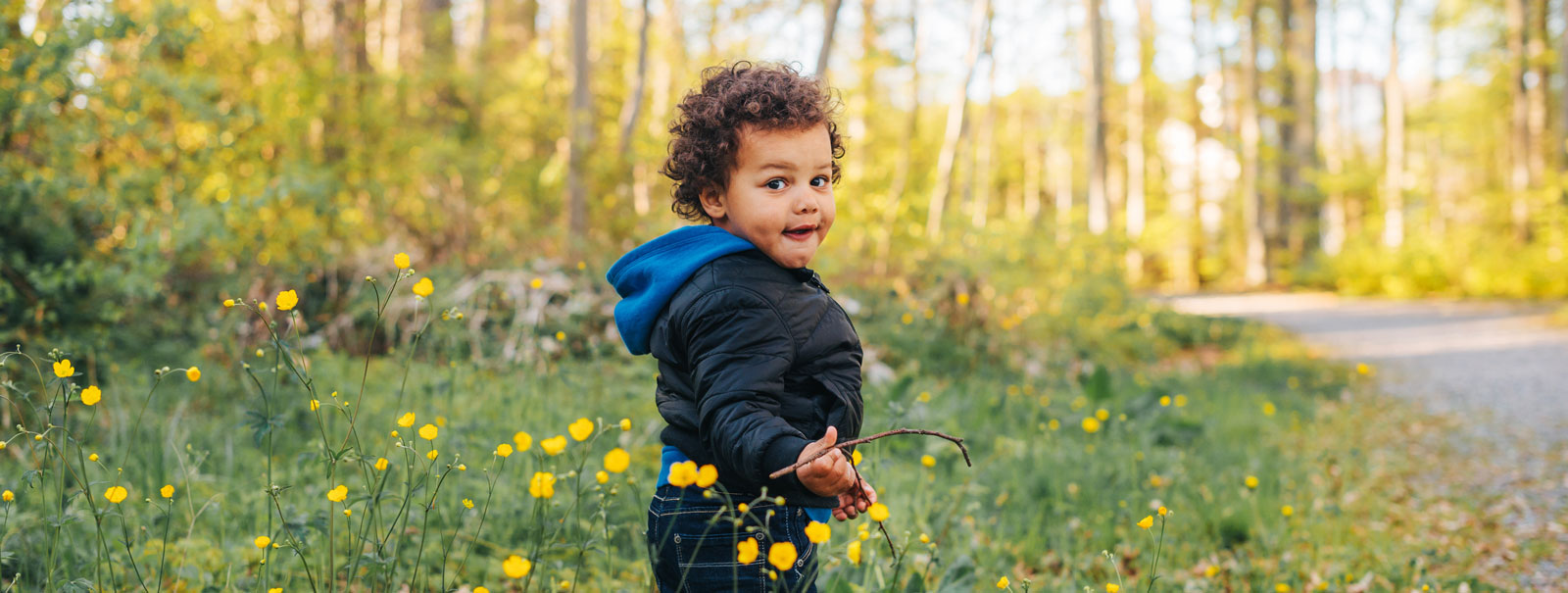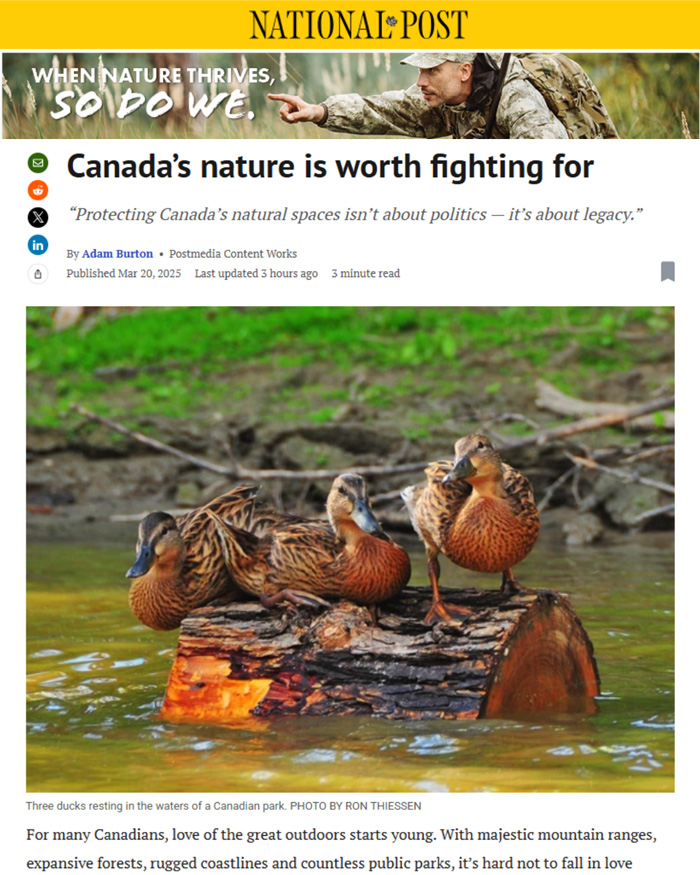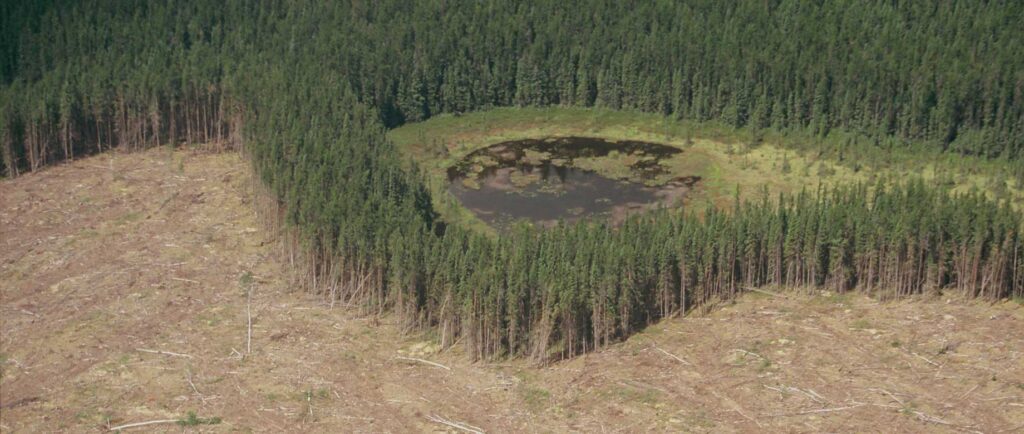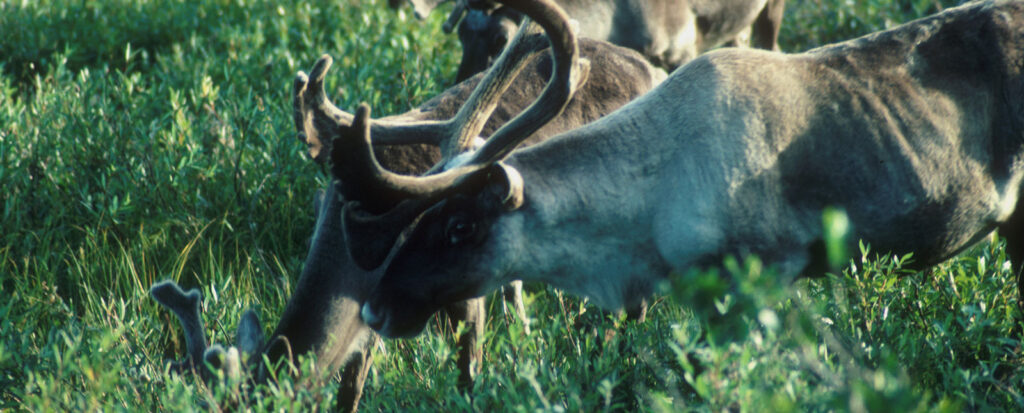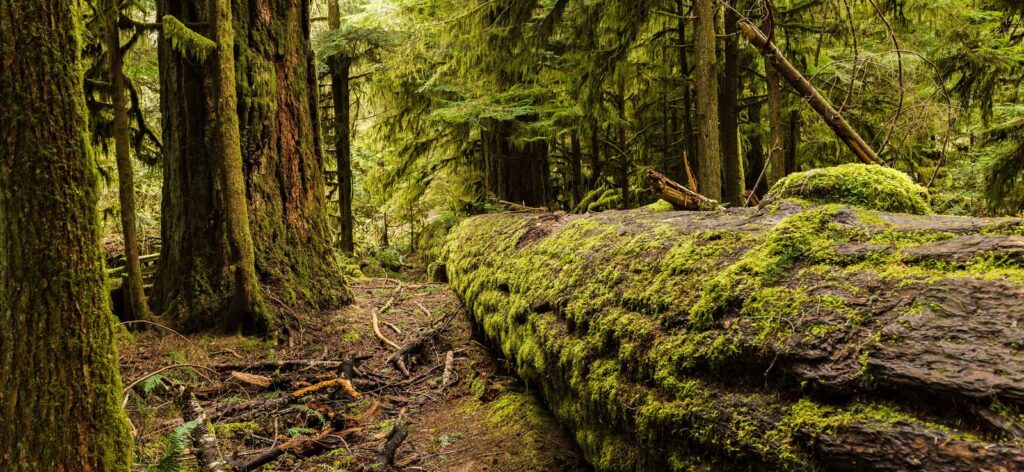“Protecting Canada’s natural spaces isn’t about politics — it’s about legacy.”
By Adam Burton, Postmedia Content Works on behalf of CPAWS. First published in the National Post on March 20, 2025, updated on April 29, 2025.
For many Canadians, love of the great outdoors starts young. With majestic mountain ranges, expansive forests, rugged coastlines and countless public parks, it’s hard not to fall in love with Canadian nature.
As urban centres grow and industry expands, however, the future of these natural spaces becomes increasingly uncertain.
The Canadian Parks and Wilderness Society (CPAWS) is an organization focused on ensuring that as the country moves forward, natural spaces aren’t left behind. It’s Canada’s only non-profit organization dedicated to the protection of public land, freshwater and oceans, and in its 60 years of operation, it has helped to protect over half a million square kilometres of nature for current and future generations to enjoy.
Nature and our economy
CPAWS believes that nature is Canada’s shared legacy — it belongs to all Canadians, not just mountaineers and ice climbers with expensive equipment. Whether you’re enjoying a park bench in your neighbourhood or taking a walk through one of Canada’s breathtaking national parks, the great outdoors is for everybody.
Since Canada’s founding, its lands and natural resources have defined the country culturally and economically. At a time when more Canadians are looking to an uncertain future, it’s more important than ever to remember that protecting resources is vital to the continuing prosperity of the nation.
Sandra Schwartz, National Executive Director at CPAWS, is adamant that it’s important to consider future generations in the decisions Canadians make right now.
“The idea that we choose between economic prosperity and environmental protection is an outdated idea,” says Schwartz. “Conservation not only strengthens our economy and creates opportunities for local communities, it also safeguards the resources that industry relies on — protecting nature is not just a moral imperative, it’s an economic one.”
Wildlife protection goes beyond political views
With a federal election looming, Canadians are increasingly focused on the direction of the country’s economy. As Canadians enter a pivotal moment in history, Schwartz emphasizes that conservation isn’t a partisan issue — it’s a shared responsibility.
”Protecting Canada’s natural spaces isn’t about politics,” says Schwartz. “It’s about legacy. Nature is tied to our Canadian identity and is a source of pride.”
This moment is a particularly critical one for conservation — a series of important investments in nature that support local economies and communities are set to expire soon. If these investments aren’t renewed, progress could be lost.
“Without continued funding for protected areas, [they] could face degradation,” says Schwartz. “We would see wildlife decline, and future generations would inherit a Canada with fewer wild spaces they could enjoy and rely on economically.”
Photo: Streamside Adventures
Conservation through making your voice heard
While many of these problems can seem too large to tackle, conservation goes beyond policy and industry — every Canadian has a role to play in protecting natural spaces.
One of the most effective ways of contributing to conservation is engaging with local representatives and candidates. Schwartz notes that calling local representatives to ask about their stance on environmental issues is an impactful way of keeping conservation on the agenda.
“Canadians need to hold their elected officials accountable,” says Schwartz. “We deserve strong and balanced policies that protect nature and support economic growth.”
Schwartz also encourages individuals to stay up to date on conservation issues by subscribing to the CPAWS newsletter. With 13 regional headquarters spread across Canada, CPAWS provides updates on local volunteering opportunities, policy and ways to get involved and protect Canada’s nature and wildlife.
Breathe in the fresh air
Beyond advocacy, one of the best ways to protect Canada’s natural spaces is to go outside and enjoy them. Whether you’re hiking, paddling or just enjoying a beautiful day at the park, spending time outdoors fosters a deeper sense of connection and responsibility. Small gestures of stewardship like picking up after yourself, staying on marked trails and respecting wildlife make all the difference.
Conservation isn’t just about protecting scenic views; it’s about protecting the future of the Canadian way of life. Schwartz stresses that the decisions we make today will affect generations to come and that every step Canadians take to protect nature today is an investment in the future of Canada’s economy, culture and way of life.
“Our identity as a country is tied to our natural world,” says Schwartz. “It’s about ensuring our children and grandchildren inherit the same freedoms we have — the freedom to hunt, fish, hike and thrive on our land.”
To learn more about how you can get involved in local conservation efforts and protect Canada’s natural spaces, visit CPAWS.org.
Banner photo: Annana Habed
Other stories you might be interested in:

